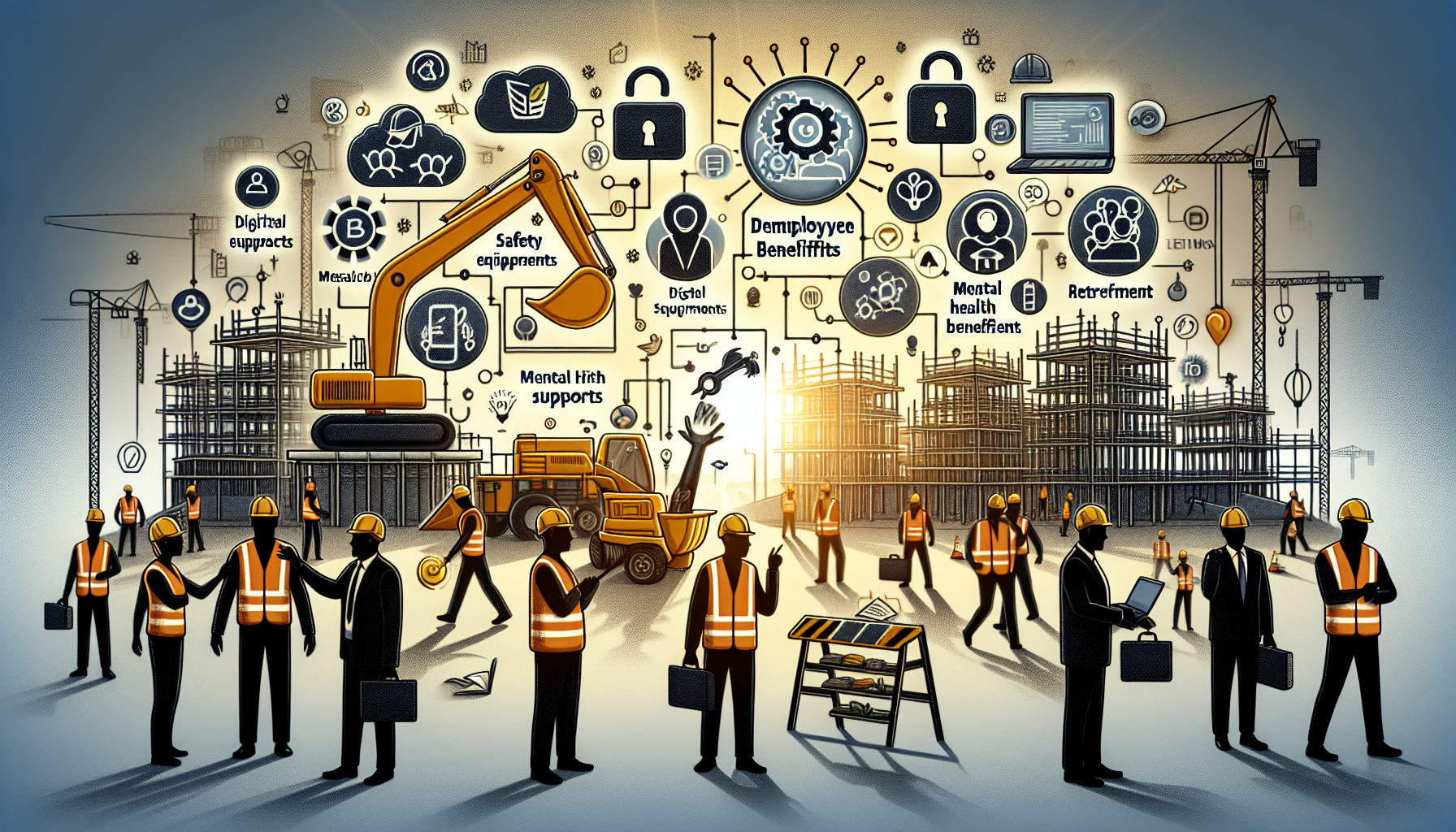The relationship between companies and employees in the construction sector is undergoing a significant shift where salary is no longer the sole key element for talent retention. According to an analysis by Catenon, today’s workers are looking for benefits that allow them to achieve a true balance between their work and personal life, improve their overall health, and, most importantly, feel valued by their employers.
This shift reflects a more diverse workforce that includes both young professionals, who prioritize flexible working hours, and more experienced employees, who value benefits such as customized health insurance and the stability provided by the now mandatory pension plans in the sector. Companies that understand these new priorities stand out in the market, attracting and retaining the most skilled professionals in a highly competitive environment.
Looking ahead to 2025, construction companies are redefining their human resources strategies to offer innovative solutions that go beyond traditional financial compensation. The focus is on overall well-being, encompassing physical and mental health of their employees as well as professional development and work-life balance.
Among the benefits most appreciated by employees in the sector, mental health has become a priority for many companies. Programs including access to psychologists, stress management workshops, and digital disconnection policies have been implemented. These efforts not only increase job satisfaction but also reduce absenteeism and strengthen employee engagement.
Work-life balance is also gaining relevance. Benefits such as childcare vouchers, extended parental leave, and additional days off are initiatives that improve employee morale and project an image of responsible companies.
Transparency in salary policies is crucial. Organizations that publish salary scales and promote equal pay generate trust and reduce internal tensions. Moreover, teambuilding activities are increasingly integrated into benefit packages, promoting cohesion and a sense of belonging.
Flexible working hours are recognized as a key pillar, as workers want to organize their time more efficiently. At the same time, opportunities for training and professional development are essential in a constantly evolving work environment. Companies that invest in employee training are seen as more loyal and committed.
Additional days off allow employees to rest and better balance their personal and professional life. Enhanced vacation benefits, such as the four-day work week, have become attractive incentives.
Another benefit is personalized health insurance, tailored to each employee’s needs, which improves their quality of life and provides a sense of security. Flexibility in compensation allows employees to decide how to receive certain economic benefits.
Finally, digital disconnection policies, which limit the use of corporate tools outside of working hours, are increasingly demanded, proving to be an effective strategy to prevent burnout and promote a healthy work environment.
This change in employee expectations, as pointed out by Carmen Caro, head of the Construction Area at Catenon, is leading the sector towards a significant transformation. Comprehensive benefits and a focus on emotional development and work-life balance have become essential for attracting and maintaining talent in a highly competitive work environment. Organizations that stay ahead in this aspect will not only gather the best teams but will also set themselves as examples to follow in the sector.










